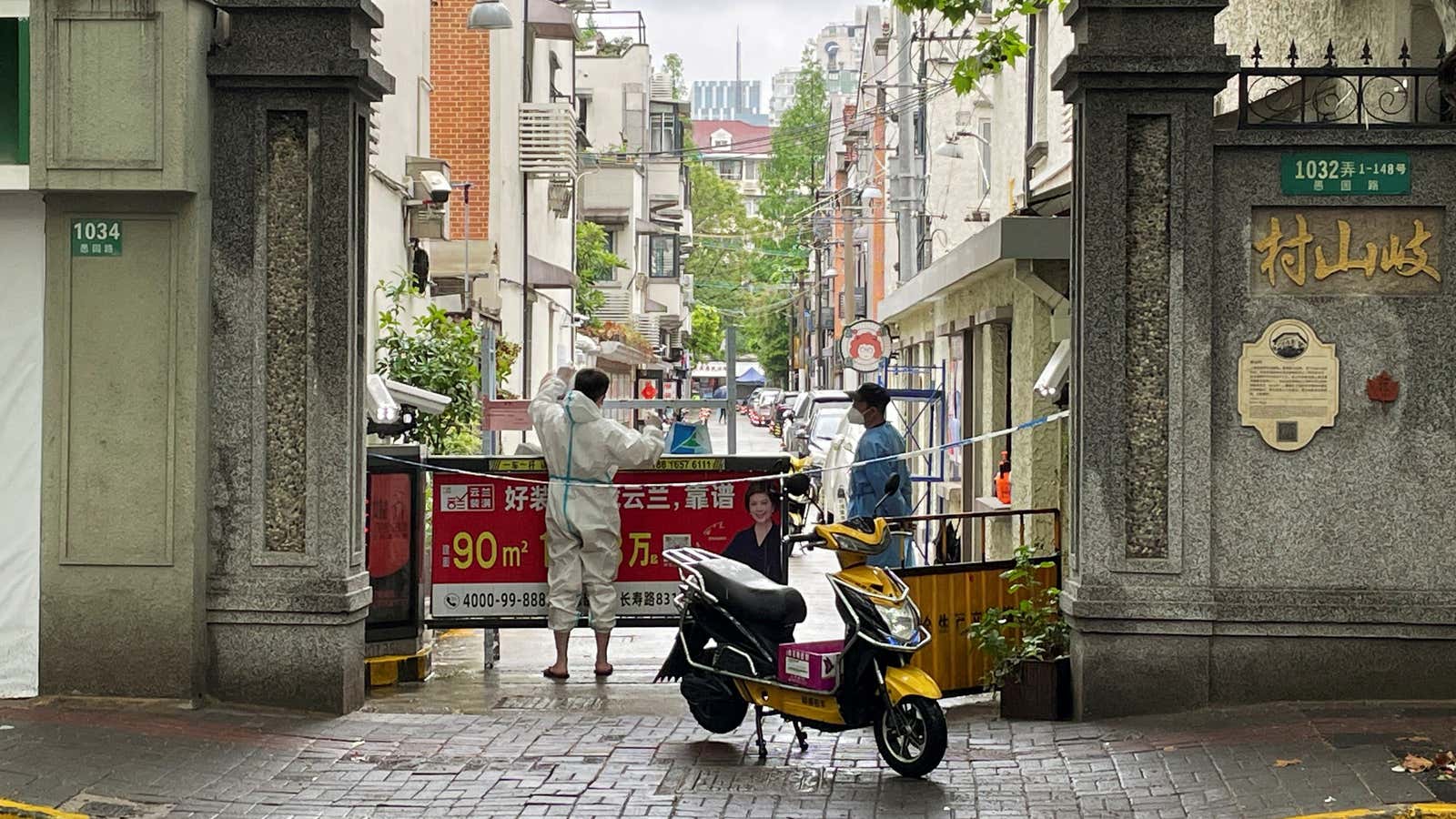Shanghai’s lockdown nightmare is not yet over—but now Beijing may be heading the same way.
Beijing saw its new daily infections grow from single digits last week to to 33 yesterday (April 25). Despite the small number of the cases, officials went into alarm mode on Sunday, ordering the 3.5 million residents of one of its core business districts, Chaoyang, to go through three rounds of covid testings this week. Yesterday, Beijing said the testing will be expanded to most districts in the city of 21 million.
For now, only a few residential buildings are in full lockdown—but the Shanghai lockdown was also preceded by similar smaller-scale lockdowns. A top of official of Beijing’s center for disease control urged people (link in Chinese) not to leave Beijing, and to cancel their gatherings for the upcoming Labor Day break that runs between April 30 and May 4—adding to fears a lockdown is looming.
Grocery apps see Beijing orders surge
In Shanghai, the suddenness and length of the lockdown led food stocks to run low in many homes. Beijing residents have taken note.
Though state media says Beijing has plenty of food supplies, on Sunday evening fresh food e-commerce apps saw surges in orders, with eggs and other provisions soon sold out, according to Chinese finance outlet Jiemian.com. Chinese food delivery giant Meituan said it extended delivery services in Beijing to around midnight, and increased its stock of goods by three to five times, while grocery platforms under Alibaba and JD.com made similar moves. For prep advice, people have turned to popular social media posts out of Shanghai that suggest stocking rice, beans, frozen vegetables, and canned meat.
“Right now there is food hoarding, but [the vibe is] still relatively calm,” said Kendra Schaefer, head of tech policy research at consultancy Trivium China, who lives in Beijing. There is no mass mobilization of personnel on the streets yet, and food is still available if one goes to the supermarket, although many home deliveries have been booked out a day in advance, she told Quartz.
Journalists and residents in Beijing, including some prominent state media workers, have shared photos of rows of empty shelves online.
Voices against another lockdown
Shanghai has paid a hefty price for its lockdown both economically and socially, while still recording tens of thousands of infections. In recent days, the death toll has also risen. The fury over Shanghai’s situation led to an online protest over the weekend in China with people sharing and preserving a short audio documentary, Voices of April, which consists of clips of government workers, covid workers, and citizens narrating their suffering under lockdown.
Hu Xijin, a former editor of hawkish state-owned tabloid Global Times, said on Weibo that he didn’t believe Beijing could adopt “full-range static management,” a euphemism the government uses to describe lockdown. ”The city must be able to control the spread of the virus in a relatively normal way, which is what it is doing now,” he said yesterday.
“If Beijing also moves towards…a long-term closure and suspension, then even if it finally achieves zero-covid after paying a huge price,” the achievement would be greatly diminished, wrote Hu.
